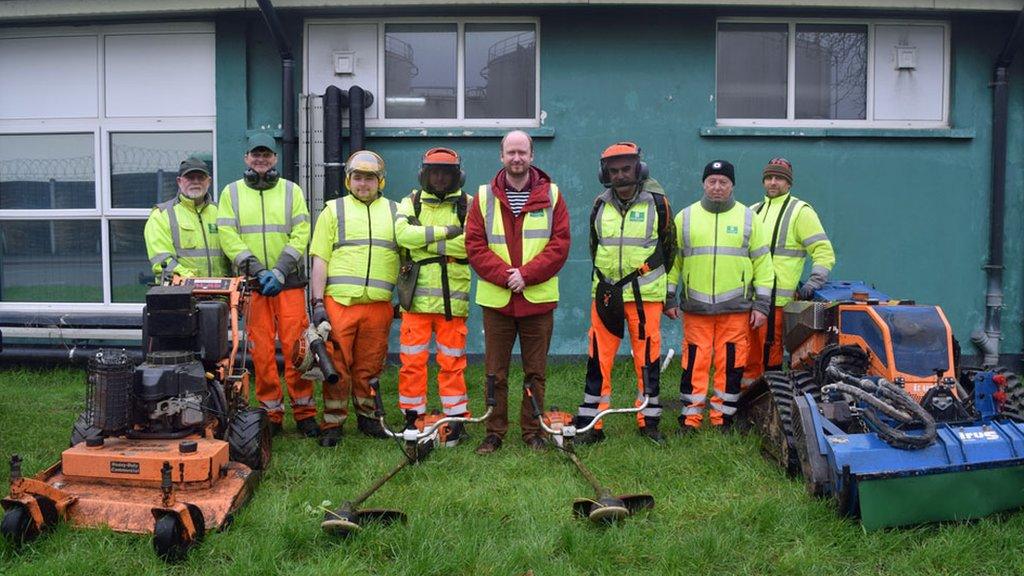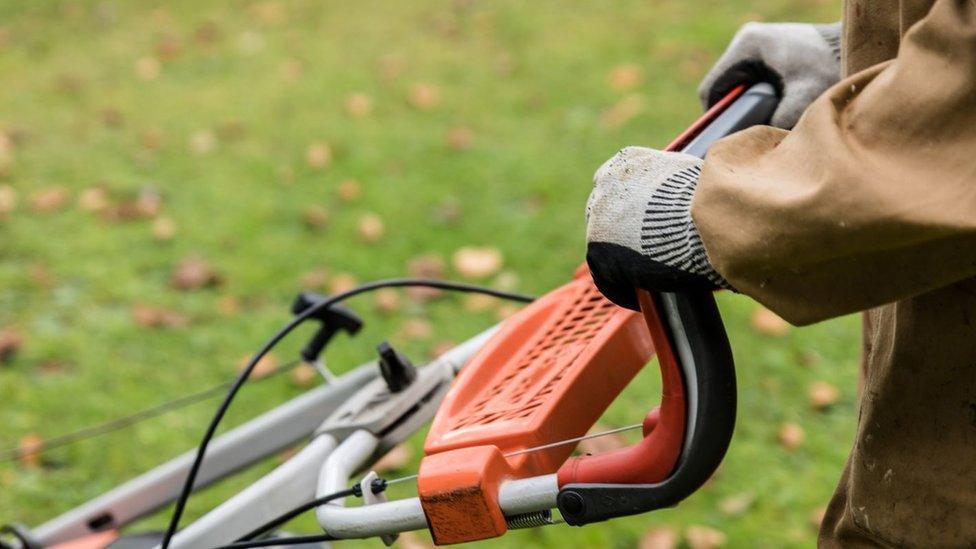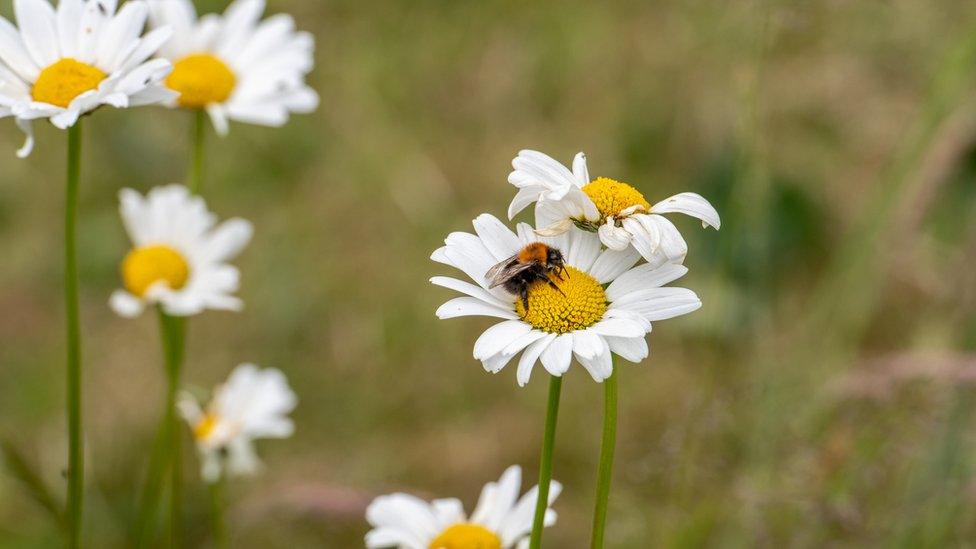Plymouth grass cutters to leave some areas wild for nature
- Published

Councillor Tom Briars-Delve with some of the grass-cutting team
Some grassy areas managed by Plymouth City Council will not be mown as part of a strategy to help support wildlife.
The council said 40% of the city's grassland would be "left to grow wild" between March and September.
The remaining 60% of grassland would continue to be cut on a regular basis as it is used by people, the authority said.
It said leaving grass to grow wild created a habitat for pollinating insects including bees and butterflies.
The council said the strategy made sure Plymouth "does its bit for the biodiversity crisis".
'Right thing to do'
Councillor Tom Briars-Delve, cabinet member for the environment and climate change, said it was "great" to see more colour in the city after the policy was first introduced a few years ago.
"To ensure that it's a policy that works for residents as well as wildlife we have to make sure that we cut the 60% we say we'll cut," he said.
"This year, we've invested £300,000 in additional resource with dedicated teams assigned to cutting play areas and cemeteries."
Mr Briars-Delve said the number of permanent staff maintaining grass areas had increased.
"We know the 60-40 approach is the right thing to do," he said.
"We're far more likely to get the buy in from residents we need to give nature a boost if we ensure we do what we say we will and keep the areas that our residents cherish regularly cut."
The council manages about 1,000 football pitches of land across the city including sports pitches, parks, play areas, wildlife meadows, roadside verges and community spaces.

Follow BBC Devon on X (formerly Twitter), external, Facebook, external and Instagram, external. Send your story ideas to spotlight@bbc.co.uk, external.
Related topics
- Published8 July 2023

- Published29 April 2022
